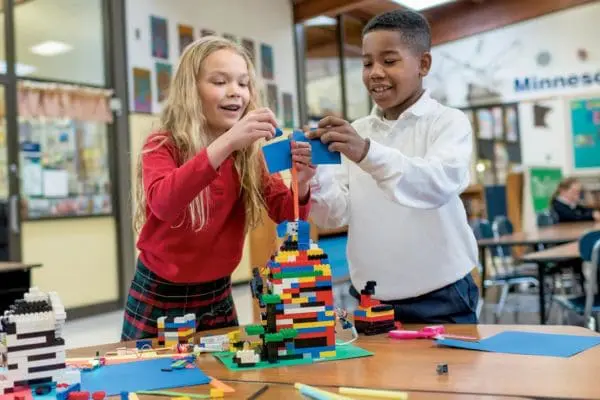
Prefrontal cortex. Amygdalae. Neuroplasticity. Limbic system.
Anyone else having visions (or maybe nightmares!) of their high school biology class and the unit on the brain? [Insert raised hand]
For many of us, studying the brain was something only discussed in the science department. It’s applicability to English, history, or math seemed lost in the lab. But I’m here to tell you, the study of the brain – the organ of learning – is transformational in the field of education.
Why? Neuroplasticity. We know our brains build and rebuild through our thoughts and actions, refining the neural networks that are our pathways of learning. This means we are all are brain changers. Teachers are brain changers by setting up the conditions for learning and guiding students along. Students are brain changers by engaging in the learning experiences, self-reflecting, and re-engaging. Parents are brain changers in the ways they assess, react, and respond to the needs of their children and teach them how to be in the world. Yet, most of us lack the understanding of how the brain receives, filters, consolidates, and applies information in effective ways that result in real learning.
Think, for a moment, about someone visiting their doctor for a well-check. Would that person be inclined to visit someone who never studied the workings of the human body? Probably not, which is why we should be motivated to see those most closely associated with the profession of learning empowered by an understanding of how the brain learns! Now, think of that same patient. Would they benefit from having the information about how to improve their health and remain strong and vibrant? Of course! This is why we want our students to understand key research about the brain, how they learn, and how they can learn in a personalized way.

Let’s not forget that parents are brain changers, too. As a mother of four, I know firsthand that understanding even some of the most basic facts about the brain can transform the way we parent. For example, if you remember that the brain is actually networked throughout our body (remember the central nervous system?), you’re more likely to understand why a child who is feeling anxious may be restless and fidgety. Remembering the neurological importance of mindful silence and time to mind-wander encourages us to create brain-healthy space and time that helps our children develop self-regulation, resilience, and feelings of self-competence.
Understanding the brain and how it works isn’t just meant for biology. It is meant for all of us! Students who understand how their brains work are more self-aware and strategic in their learning. Teachers who understand how the brain works can personalize their classroom experience and help students become independent learners and high-achieving students. Parents who understand how the brain works can recognize when their children are struggling, when they need more challenge, and respond effectively.

Through the Peter Clark Center for Mind, Brain, and Education at Breck School, we know that our teachers and students are brain changers (literally!) and the study of the brain can transform their approach to teaching and measurably improve the learning of their students. This is why we have committed ourselves to training 100 percent of our faculty in the field of Mind, Brain, and Education science – to build on the excellence we have, lead the national conversation to raise the profession of teaching to an even higher standard, and set even the highest-achieving student off into interesting new directions.
You can learn more about the academics, world-class teaching, and innovative approach to education by visiting us online at www.breckschool.org.
Daisy Pellant is the Director of the Peter Clark Center for Mind, Brain, and Education at Breck. Her role is to help students understand learning and themselves as learners, engage families in effectively supporting their children as learners, and inspire faculty to develop their expertise in pedagogy aligned with current neuroscience. A lifelong learner, Daisy earned two Master’s degrees (Curriculum and Instruction/Mind, Brain, and Education) and a Ph.D. (Developmental Educational Psychology) while serving as a classroom teacher, faculty development director, school counselor, and psychologist in independent schools internationally and in the U.S. She has worked with faculty, children, and families Preschool-12, undergraduate, and graduate students.
